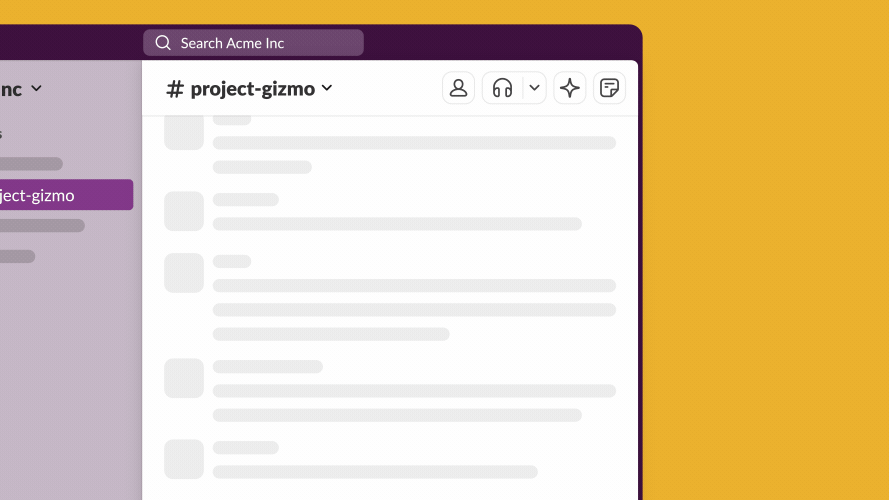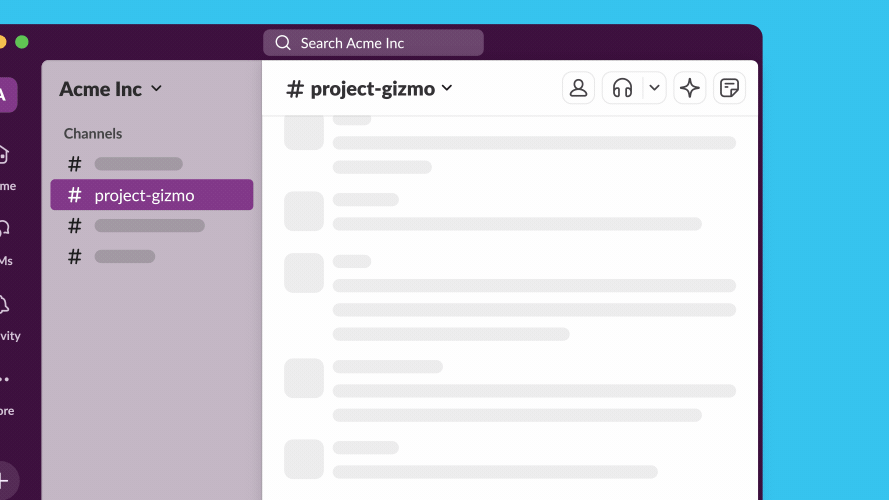Salesforce Unveils Slack AI to Streamline Enterprise Productivity
Salesforce today unveiled a new suite of artificial intelligence (AI) capabilities natively embedded within its Slack collaboration platform. Dubbed Slack AI, the features including AI search, channel recaps, and thread summaries aim to help users discover and share knowledge more efficiently.
Table of contents
Targeting ‘Cognitive Overload’ for Digital Workers
A key driver highlighted focuses on addressing “cognitive overload” from exponentially growing information streams workers must synthesize. “Nearly half of digital workers struggle to find the information they need to efficiently do their jobs,” the announcement noted, citing Gartner research.
Slack AI provides tools like AI search responses and channel highlights to help employees “find answers, distill knowledge, and spark ideas faster” by contextualizing and prioritizing relevant information from across conversations and archives. “These new AI capabilities empower our customers to access the collective knowledge within Slack so they can work smarter, move faster, and spend their time on things that spark real innovation and growth,” said Denise Dresser, CEO of Slack.
Slack AI: A Trusted, Intuitive User Experience
Rather than requiring specialized technical knowledge, Slack AI is positioned as “trusted and intuitive” for average business users. Interactions utilize clear stepping and attribution back to source data points.

Slack AI is designed to be trustworthy, easy to use, and require no training, according to Salesforce. Slack AI features are invoked through guided, contextual interactions, ensuring they don’t have to learn brand new skills. This allows workers to focus on core responsibilities rather than learning complex AI query languages.
“In the era of generative AI, Slack is the trusted, conversational platform that connects every part of a business to supercharge team productivity,” Dresser asserted.
Promising Productivity Lift
In its announcement, Salesforce pointed to Slack AI efficiency improvements including:
- 97 minutes per user weekly time savings during pilots
- Sales teams easily bringing expertise to customer questions
- Engineers accessing incident data to resolve issues faster
- Summarized key decisions and next steps from conversations
Beta user Zach Hyman of Slack customer SpotOn verified observed productivity gains: “During the pilot program, we experienced firsthand the major productivity [lift] that Slack AI could drive.”
The goal is to accelerate employee efficiency through frictionless knowledge sharing. “Slack AI helps users unlock the full potential of company knowledge in Slack, all while supporting existing security, privacy, and compliance controls,” said industry analyst Irwin Lazar of Metrigy.
Slack as the AI Integration Hub
Beyond native tools, Salesforce is opening Slack as a broader AI integration portal. The platform’s app directory already includes partner solutions integrating AI-powered functionality like automated incident response and document summarization. The ecosystem approach aims to centralize access to AI-enabled apps through Slack, reducing disruptive context switching.

This all makes sense for Salesforce. Making Slack the single pane of glass for AI unlocks more embedded insights for their customers.
Responsible Development with Guardrails
Slack AI wants to be a “trusted and secure” offering upheld to existing platform standards. Dresser confirmed Slack AI will maintain stringent privacy controls and data processing in-house, with a commitment that “customer data remains siloed and will not be used to serve other clients, directly or indirectly.”
Business, technology, and policy leaders share responsibility to ensure we realize that productivity promise through grounded oversight.
By cementing an early foothold at the intersection of work collaboration and AI assistance, Salesforce is aiming to enhance knowledge sharing for the next decade across industries. But ethical questions will remain front-and-center as capabilities progress.






